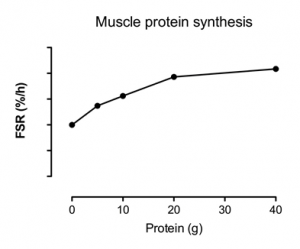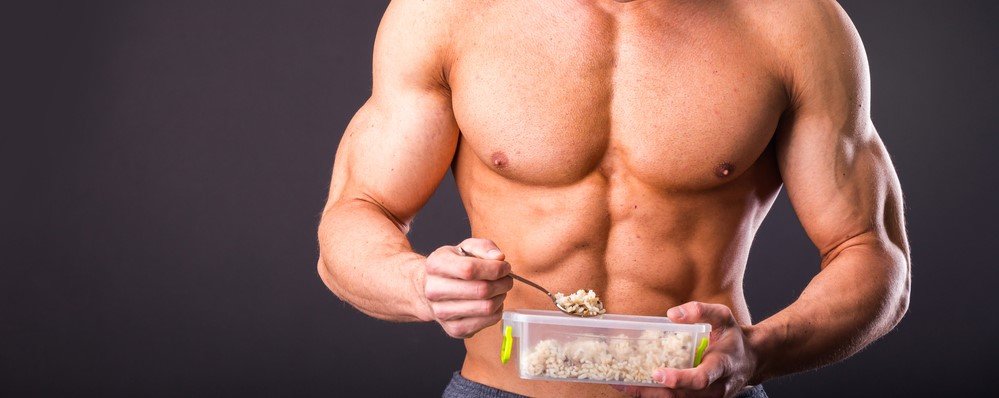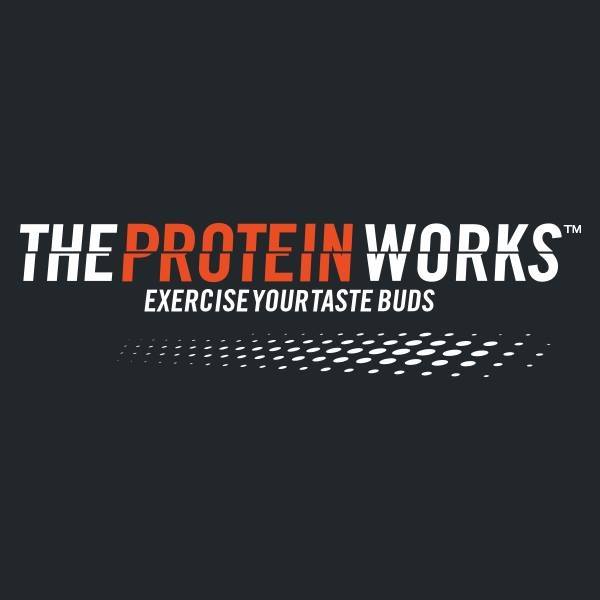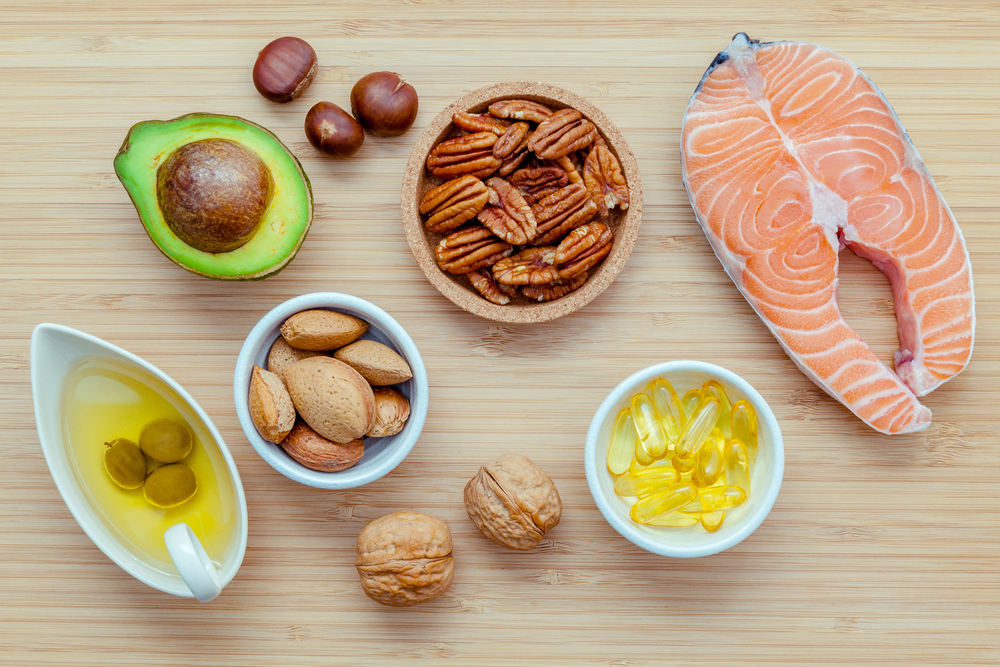Protein is the main building block of our muscles, and it’s likely that most of us leading an active lifestyle are aware of the association between consuming protein and growing muscle.
So, what is muscle protein synthesis?
Muscle protein synthesis (MPS) is the biochemical process our muscles use to grow, recover from exercise and get stronger. MPS is essential for recovery post-exercise and gaining muscle mass; which is why this is a hot topic in the fitness and sports nutrition industry. However, the benefits of MPS are only effective when it exceeds the opposing process of muscle protein breakdown (MPB). Therefore, if MPB exceeds MPS then you will lose muscle mass and not gain. Our muscle proteins are in a constant cycle that involves both processes.
But worry not, MPB is of far less importance than MPS. Changes in muscle protein synthesis are much greater in response to exercise and nutrition than changes in muscle protein breakdown in healthy humans (Greenhaff et al., 2008). We reduce MPB by 50% every time we eat, and whilst MPB may sound like a bad thing, this process allows us to break down muscle proteins damaged from exercise and recycle most of them into new muscle proteins (Phillips et al, 1997). In fact, studies have shown that we need some amount of MPB in order to optimally adapt to exercise and maximise muscle growth (Bell et al., 2016). This means that MPB can play a helpful part in gaining muscle mass…so it isn’t all bad!
How much protein should I be having to get the benefits of MPS?
The amount of protein we eat can significantly maximise MPS and help towards fitness and body goals. Studies have shown that in order to gain optimal MPS, between 20-40g should be consumed at each meal. 20g of protein at each meal shows a near-maximal increase of MPS by 25%. An additional 20g, to total 40g protein, results in a further 10-20% increase of MPS (Witard et al, 2013). There is little evidence to suggest upping this serving beyond 40g increases MPS rates (Moore et al, 2008).
See graph below:
 (Moore et al., 2008)
(Moore et al., 2008)
It’s a common assumption that people with more muscle mass need to consume more protein than those with less muscle in order to achieve further growth. However, recent studies have shown that the amount of lean muscle mass does not affect the response to protein ingestion. Put simply, even the biggest guys in the gym don’t need more protein to get the same response to MPS as smaller guys. However, this is providing the minimum amounts 20-40g are being met at each feed to achieve an increase in MPS response (Macnaughton et al., 2016).
Are any protein sources more effective in gaining these MPS benefits?
Animal protein is the best source to increase MPS, particularly whey protein due to its high essential amino acid content and fast digestibility (Pennings et al., 2011). Made from a unique protein formulation, TPW Whey Protein 360 Extreme provides a blend of the highest quality whey protein concentrate and whey protein isolate to reach optimum MPS benefits. However, the same effects can be gained by eating larger quantities of plant protein, so herbivores needn’t miss out on these potential gains (Gorissen et al., 2016). Our TPW Vegan Protein Extreme packs a whopping 25g of plant-based protein per serving so is the perfect way to meet these optimal protein guidelines for MPS.
Do I need to consume protein immediately after training to increase MPS response?
Exercise improves the MPS response to protein ingestion and thus, it has been recommended that protein intake immediately after training is more effective at building muscle than consuming protein at different time points.
Studies have shown that consuming protein immediately after exercise is more effective than consuming protein 3 hours after exercise (Levenhagen et al., 2001). Furthermore, weight training enhances the MPS response to protein consumption for at least 24 hours (Burd et al., 2011). It is therefore suggested that the impact of protein consumption after exercise is at its highest immediately after exercise and then gradually declines over the next 24 hours.
So, is there any benefit to staggering protein in meals/shakes/snacks throughout the day?
Incorporating protein into breakfast, lunch and dinner increases the effectiveness of MPS than consuming the majority of daily protein intake in one large evening meal (Mamerow et al, 2014). Consuming 20g protein every 3 hours is more effective at stimulating MPS than having the same amount less frequently (for example 40g every 6 hours), or more regularly (10g every hour and a half) (Areta et al, 2013). It is therefore clear that MPS rates are not only influenced by the amount of protein consumed, but also the timing of protein intake.
To summarise, here’s some tips on how to optimise MPS with nutrition:
- Eat between 20-40g protein at each meal. Anything above 20g gives a small additional increase, however anything above 40g shows minimal increase thereafter.
- Eat 4-5 meals spread throughout the day: e.g. breakfast, lunch, a shake after training, dinner, and a pre-sleep protein snack. Our Loaded Legends are a great option for an evening sweet treat with 15g protein a pop!
- Go for animal protein for maximum benefits (whey protein is the best). Or you can compensate for this by eating larger amount of plant protein. See our TPW Vegan Bulking Meal Plan for a huge range of high-protein vegan meal options.
- If your main goal is to build muscle, do not eat in a calorie deficit and ensure you eat at least maintenance calories.
References:
- Areta, J., Burke, L., Ross, M., Camera, D., West, D., Broad, E., Jeacocke, N., Moore, D., Stellingwerff, T., Phillips, S., Hawley, J. and Coffey, V. (2013). Timing and distribution of protein ingestion during prolonged recovery from resistance exercise alters myofibrillar protein synthesis. The Journal of Physiology, 591(9), pp.2319-2331.
- Bell, R., Al-Khalaf, M. and Megeney, L. (2016). The beneficial role of proteolysis in skeletal muscle growth and stress adaptation. Skeletal Muscle, 6(1).
- Burd, N., West, D., Moore, D., Atherton, P., Staples, A., Prior, T., Tang, J., Rennie, M., Baker, S. and Phillips, S. (2011). Enhanced Amino Acid Sensitivity of Myofibrillar Protein Synthesis Persists for up to 24 h after Resistance Exercise in Young Men. The Journal of Nutrition, 141(4), pp.568-573.
- Gorissen, S., Horstman, A., Franssen, R., Crombag, J., Langer, H., Bierau, J., Respondek, F. and van Loon, L. (2016). Ingestion of Wheat Protein Increases In Vivo Muscle Protein Synthesis Rates in Healthy Older Men in a Randomized Trial. The Journal of Nutrition, 146(9), pp.1651-1659.
- Greenhaff, P., Karagounis, L., Peirce, N., Simpson, E., Hazell, M., Layfield, R., Wackerhage, H., Smith, K., Atherton, P., Selby, A. and Rennie, M. (2008). Disassociation between the effects of amino acids and insulin on signaling, ubiquitin ligases, and protein turnover in human muscle. American Journal of Physiology-Endocrinology and Metabolism, 295(3), pp.E595-E604.]
- Levenhagen, D., Gresham, J., Carlson, M., Maron, D., Borel, M. and Flakoll, P. (2001). Postexercise nutrient intake timing in humans is critical to recovery of leg glucose and protein homeostasis. American Journal of Physiology-Endocrinology and Metabolism, 280(6), pp.E982-E993.
- Macnaughton, L., Wardle, S., Witard, O., McGlory, C., Hamilton, D., Jeromson, S., Lawrence, C., Wallis, G. and Tipton, K. (2016). The response of muscle protein synthesis following whole-body resistance exercise is greater following 40 g than 20 g of ingested whey protein. Physiological Reports, 4(15), p.e12893.
- Mamerow, M., Mettler, J., English, K., Casperson, S., Arentson-Lantz, E., Sheffield-Moore, M., Layman, D. and Paddon-Jones, D. (2014). Dietary Protein Distribution Positively Influences 24-h Muscle Protein Synthesis in Healthy Adults. The Journal of Nutrition, 144(6), pp.876-880.
- Moore, D., Robinson, M., Fry, J., Tang, J., Glover, E., Wilkinson, S., Prior, T., Tarnopolsky, M. and Phillips, S. (2008). Ingested protein dose response of muscle and albumin protein synthesis after resistance exercise in young men. The American Journal of Clinical Nutrition, 89(1), pp.161-168.
- Pennings, B., Boirie, Y., Senden, J., Gijsen, A., Kuipers, H. and van Loon, L. (2011). Whey protein stimulates postprandial muscle protein accretion more effectively than do casein and casein hydrolysate in older men. The American Journal of Clinical Nutrition, 93(5), pp.997-1005.
- Phillips, S., Tipton, K., Aarsland, A., Wolf, S. and Wolfe, R. (1997). Mixed muscle protein synthesis and breakdown after resistance exercise in humans. American Journal of Physiology-Endocrinology and Metabolism, 273(1), pp.E99-E107.
- Witard, O., Jackman, S., Breen, L., Smith, K., Selby, A. and Tipton, K. (2013). Myofibrillar muscle protein synthesis rates subsequent to a meal in response to increasing doses of whey protein at rest and after resistance exercise. The American Journal of Clinical Nutrition, 99(1), pp.86-95.










No Comments yet!